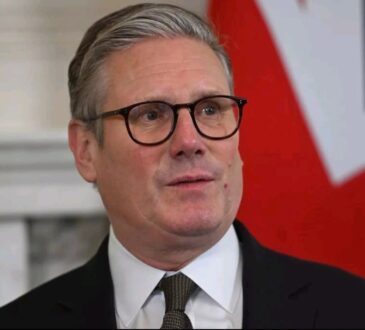
During a discussion on GB News, hosts Emma Woolf and Kevin Schofield revealed significant public dissatisfaction with Prime Minister Keir Starmer’s government. A recent poll shows that 47% of voters want another general election, including a surprising 33% of Labour voters. This is a major signal of unhappiness, even from those who voted for Labour in July’s election.
Adding to this, an online petition calling for a new election has gathered nearly 3 million signatures, a number so large that it could trigger a parliamentary debate in January. The conversation on GB News explored why so many people are unhappy and what this means for Labour’s future.
Emma Woolf explained the significance of the polling results, saying, “It’s no surprise that support for a new election is highest among Reform and Conservative voters. But what really stands out is that a third of Labour voters want one too. That’s a big deal because it shows they’re unhappy with the government’s performance so far.”
She continued, “This dissatisfaction shows that Labour isn’t delivering what their own voters hoped for. It’s a clear message that things need to change.”
Kevin Schofield added, “The fact that even Labour voters want a general election highlights how underwhelming Starmer’s government has been in its first five months. People expected more, and they aren’t getting it.”
The panel also discussed growing criticism of Starmer’s leadership style. His frequent international travel has sparked headlines accusing him of neglecting domestic issues. While Starmer has attended important global events like the G20 and COP climate conference, critics argue he needs to focus more on problems at home.
Schofield pointed out, “There’s this narrative in the papers about Starmer being a ‘globe-trotter.’ He’s been to the G20, the Commonwealth meetings, and COP. While these are important events, people feel he should spend more time in the UK dealing with issues here.”
Woolf highlighted how Starmer’s appearances in Prime Minister’s Questions (PMQs) have been mixed. She said, “He’s been good at PMQs, especially at making the Prime Minister look like he’s not answering questions. But as one MP told me, no one will vote in 2028 based on how Starmer performed in PMQs in 2024. He needs to do more than just win debates.”
The recent resignation of Transport Secretary Louise Haigh has added to the party’s struggles. Reports suggest Starmer knew about Haigh’s fraud conviction when she was appointed, raising questions about his judgment. Schofield remarked, “Starmer’s response to Haigh’s resignation was unusually cold. Prime Ministers usually praise resigning ministers, but his letter was short and to the point. It’s fueling speculation that Haigh was pushed out because she wasn’t a good fit.”
The panel also discussed rumors that Haigh’s resignation was part of a political plot. Some trade unions believe Labour insiders leaked her past conviction to force her out. Schofield explained, “There’s a lot of speculation that this was a planned move to get rid of Haigh. If true, it raises even more questions about how Labour handles its internal politics.”
While a general election is highly unlikely, the growing public dissatisfaction is a warning sign for Starmer. Woolf summed it up, saying, “Nearly 3 million people have signed a petition for a new election. Labour can’t ignore that. They’ve got four years to prove themselves, but they need to start delivering now.”
Schofield added, “Labour is at a crossroads. If they don’t address these issues, they risk losing the trust of voters before the next election even begins.”
The discussion ended with a clear message: Labour needs to act fast to address public concerns. Starmer’s leadership, Labour’s policies, and the handling of internal issues will all play a role in determining whether the party can regain the trust of voters. With four years left in the term, Labour has time, but the dissatisfaction among even their own supporters shows they need to step up their game now.




